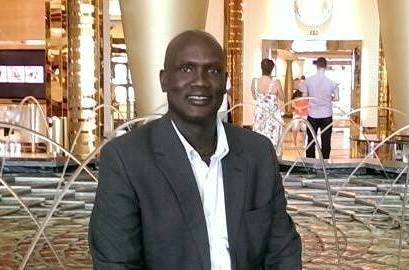South Sudan trade minister denies fixing exchange rate remarks
February 17, 2017 (JUBA) – The South Sudanese minister of trade has on Friday denied reports quoting him to have said the government would fix the exchange rate, in a bid to salvage the economy from spiraling out of control and to help regain trust and confidence of the local population in the light of hike of foreign exchange against the local current in an effort to reduce market prices.

“That was out of context. It was not what I did say. I said the exchange rate was dropping and if it continues it would reach the point where the exchange rate would stabilize and any stabilization becomes a fixed rate by itself, if the market forces meet at the point of satisfaction, where goods would be locally available for our people to access and traders would be able to get hard currency to help import only goods and services which are not produced locally,” said Ayet.
The foreign exchange rate was fixed against the pound until in December 2015 when the government decided to adopt floating exchange rate against the pound. The objective, according to proponents of the proposal was to help everyone have access to foreign exchange market.
Ayet, who visited the market on Thursday in a bid to carry out a survey to gain insight about the prices of different commodities, said the survey gave him and his team the opportunity to gather firsthand information about the prices and what the traders were facing in the light of the current economic situation.
“Yes, I was in the market to conduct a survey and to talk to the traders. I wanted to know the cause of the rise of prices while the exchange rate was dropping. The other day, the dollar went up. It was exchanging at the rate of 13,000 per 100 dollars but it went down the next day to 10,000 per 100 dollars but the prices never dropped. They remained fixed. This was what I wanted to understand so that we could it use in our planning,” explained Minister Ayet.
The official said it was important to gather the views of the traders as they are important stakeholders and so his ministry appreciates their involvement and cooperation and coordination.
(ST)
